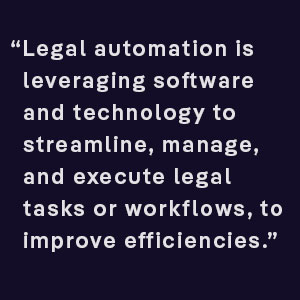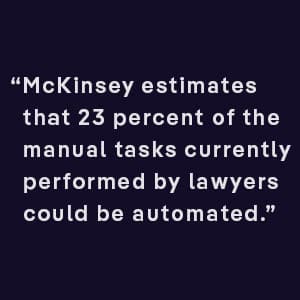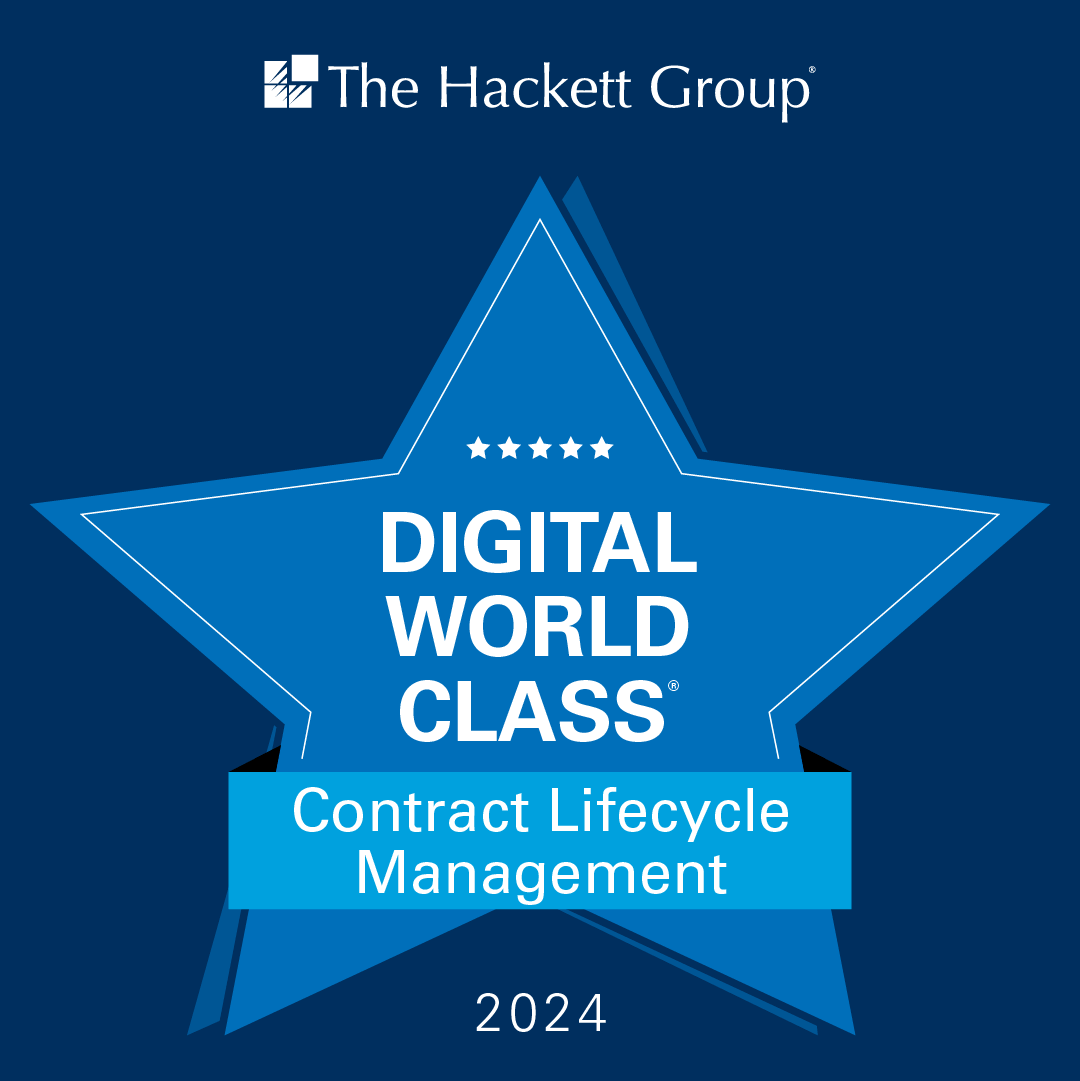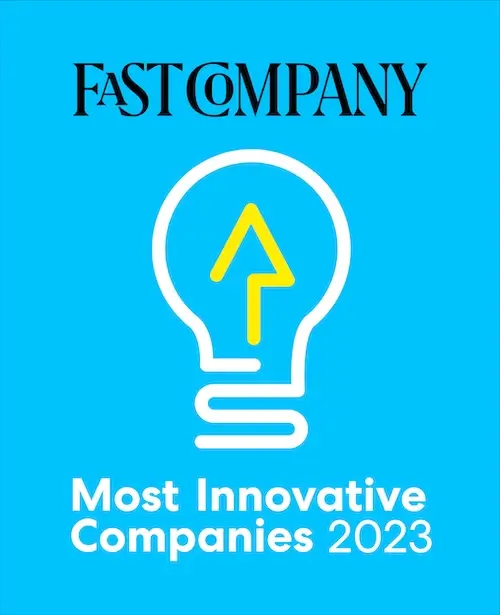Legal automation is leveraging software and technology to streamline, manage, and execute legal tasks or workflows — creating efficiencies and mitigating risk. Automating manual, mundane, or routine responsibilities provides lawyers and legal teams more time to focus on high-level responsibilities, such as financial negotiations and providing strategic advice to clients. It also helps reduce human error and eliminates duplicate work.
Now, let us explore the why, what, who, and when of legal automation — and how your team can use technology for end-to-end contract lifecycle management (CLM).
Why is Legal Automation Important?
Legal departments have historically used a manual, siloed processes to complete typical, daily workflows that consist of burdensome administrative tasks. Unfortunately, this proves to be time-consuming and poses additional compliance risks. Legal automation empowers legal personnel and contract management (CM) teams to work faster and more accurately, ultimately driving an increase in your bottom line. It also provides the following benefits:
Access to data: When lawyers use independent processes and systems, information and data are often disparate and can get lost when individuals leave the organization. This creates a bottleneck in the business. Legal automation provides the ability to share and search data across the company, creating better visibility and analysis opportunities.
Less duplication: Many legal tasks are repeated over and over, every day. Legal automation streamlines workflows to prevent duplication and ensure consistency every time.
Reduced errors: Humans are not perfect. But unfortunately, making minor mistakes in the legal field has the potential for major problems, both financially and legally. Legal automation enforces rules and parameters to safeguard those risks.
Better compliance: Best-in-class legal automation tools integrate artificial intelligence (AI) to alert users to compliance issues and adhere to pre-specified industry, regulatory, and legal requirements.
More time for high-value tasks: Legal automation allows your legal department to work faster and smarter — and focus on more strategic and critical responsibilities — by eliminating repetitive, non-billable work. This results in better client relationships and even increased revenue.
What are Different Types of Legal Automation?
Electronic signature: Finalizing contracts should be fast, seamless, and easy. By automating this process, allow multiple signees to instantly access digital contracts on any device by simply clicking a direct link to the document.
Contract automation: Automate each stage of a contract’s lifecycle — from initiation and execution to signature, and renewal — and assess risk and measure success along the way.
Contract review: Leverage AI to review one or thousands of contracts instantly, and search for key terms, non-compliant language, standardized clauses, and much more.
Automated workflows: Create a common workflow that is scalable across the team or organization to not only save time and decrease unnecessary headcount but also ensure consistency and accuracy.
Automated billing management: Monitor your spending on outside counsel or vendors with greater insight and analysis of historical data — and make smarter decisions moving forward.
Automated risk and compliance management: Assess and expertly manage your company’s compliance and stay on top of regulatory guidelines to reduce risk across your legal processes.
Knowledge management (KM): Take a streamlined approach to knowledge management to quickly find and leverage prior work and accumulated expertise, to solve legal matters and business problems.
Obligation management: Utilize alerts that remind you of upcoming renewals to easily capitalize on potential revenue and enhance current client relationships.
Who Needs Legal Automation?
Legal automation positively impacts not only general counsels, in-house legal teams, and contract management teams, but also the entire business.
McKinsey estimates that 23 percent of the manual tasks currently performed by lawyers could be automated. Leveraging tools and technology that could potentially give your team 23 percent more time in the day to focus on time-sensitive matters and high-value work ultimately benefits your entire organization and your clients.
Transform Your Workflows With ContractPodAi Cloud
How is Legal Automation Used?
While legal automation can be used in many different areas, here is one real-world example of applying it to your business:
Legal departments often spend countless hours working on routine non-disclosure agreements (NDAs). NDAs protect a company’s business assets, including intellectual property (IP), client information, marketing plans, trade secrets, and other sensitive data. Because NDAs cover an organization’s entire business, most agreements are fairly standard with consistent language and terms. So, drafting the agreements should be somewhat straightforward.
However, without legal automation, your legal or contract management team is forced to manually create each NDA. This wastes valuable time and deprives staff of critical hours to focus on more strategic matters. It also leaves room for a lack of consistency, human error, out-of-date terms and conditions, and execution delays. Legal automation helps create an NDA efficiently by allowing you to:
Legal Automation FAQs
1. Is legal automation cost-effective?
A study suggests that a first-class CLM system has anywhere from 91 to 183 times return on the investment, making it a very sound purchase for your organization. However, there are many considerations when choosing best-in-class CLM technology. Do you want to pay per user, document, workflow, etc.? Do you require extensive customization? Do you want ongoing support? Working with the right CLM vendor is crucial to meeting your organization’s specific needs.
2. What is legal automation vs digital transformation?
Legal automation is leveraging software and technology to streamline, manage, and execute legal tasks or workflows, to improve efficiencies.
Digital transformation is the integration of digital technology into your business to improve products or services, reduce costs, and provide value to your clients.
These two concepts are often linked together to create a competitive advantage and enhance end-to-end processes.
3. Does my team need legal automation?
Do you want to save valuable time, drive revenue recognition, increase productivity, and mitigate risk? Then, yes.
How does an Intelligent CLM Drive Legal Automation?
Leading organizations are turning to contract lifecycle management (CLM) technology to streamline and automate key processes and workflows, including:
Authoring & Generation: Utilize self-service templates with an integrated clause library to generate contracts faster and wiser.
Legal Risk, Compliance, and Review: Quickly review your contracts to assess and score the business risk, and locate problematic clauses that may require updated language.
Collaboration & Negotiation: Experience real-time document collaboration with your team, clients, partners, and suppliers.
Signing: Instantly access and sign digital contracts on any device, along with multiple parties
Managing and Saving: Easily search for contracts or specific clauses in one secure digital repository that houses every contract.
Analysis & Reporting: Leverage metrics-based data to determine your team’s achievements and alignment with target business outcomes.
To learn more about legal automation, download our Contract Management Primer. It is a free guide that includes a handy contract management checklist for you and your legal team. And to find out how ContractPodAi can help you adopt and implement a CLM system of your own, contact us today to book a demo.
Author:

Anurag Malik
Connect with us on Linkedin











